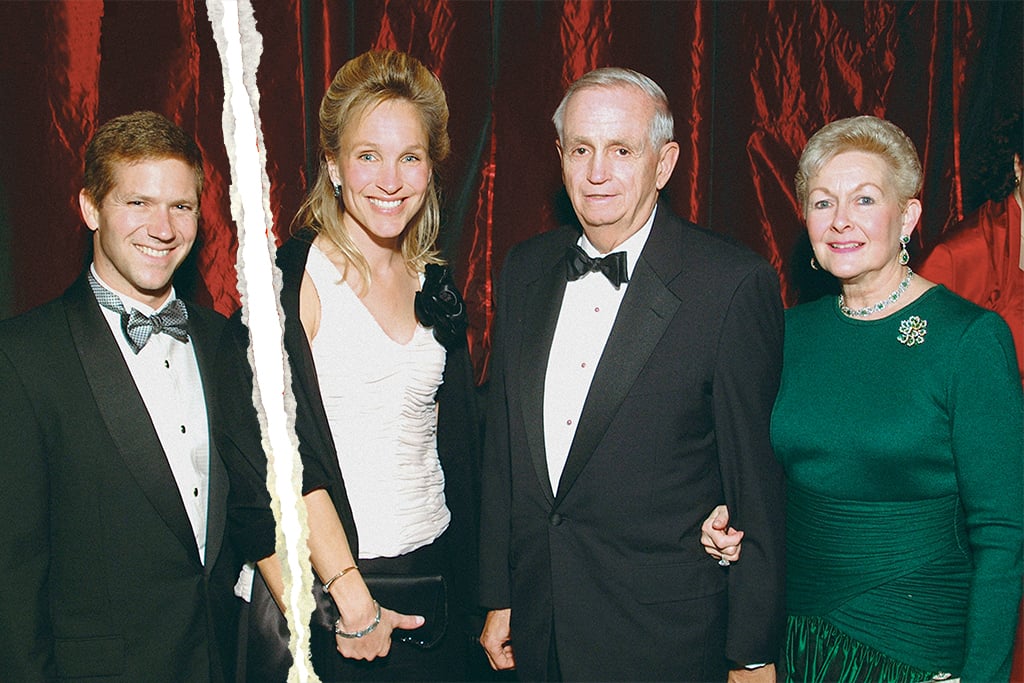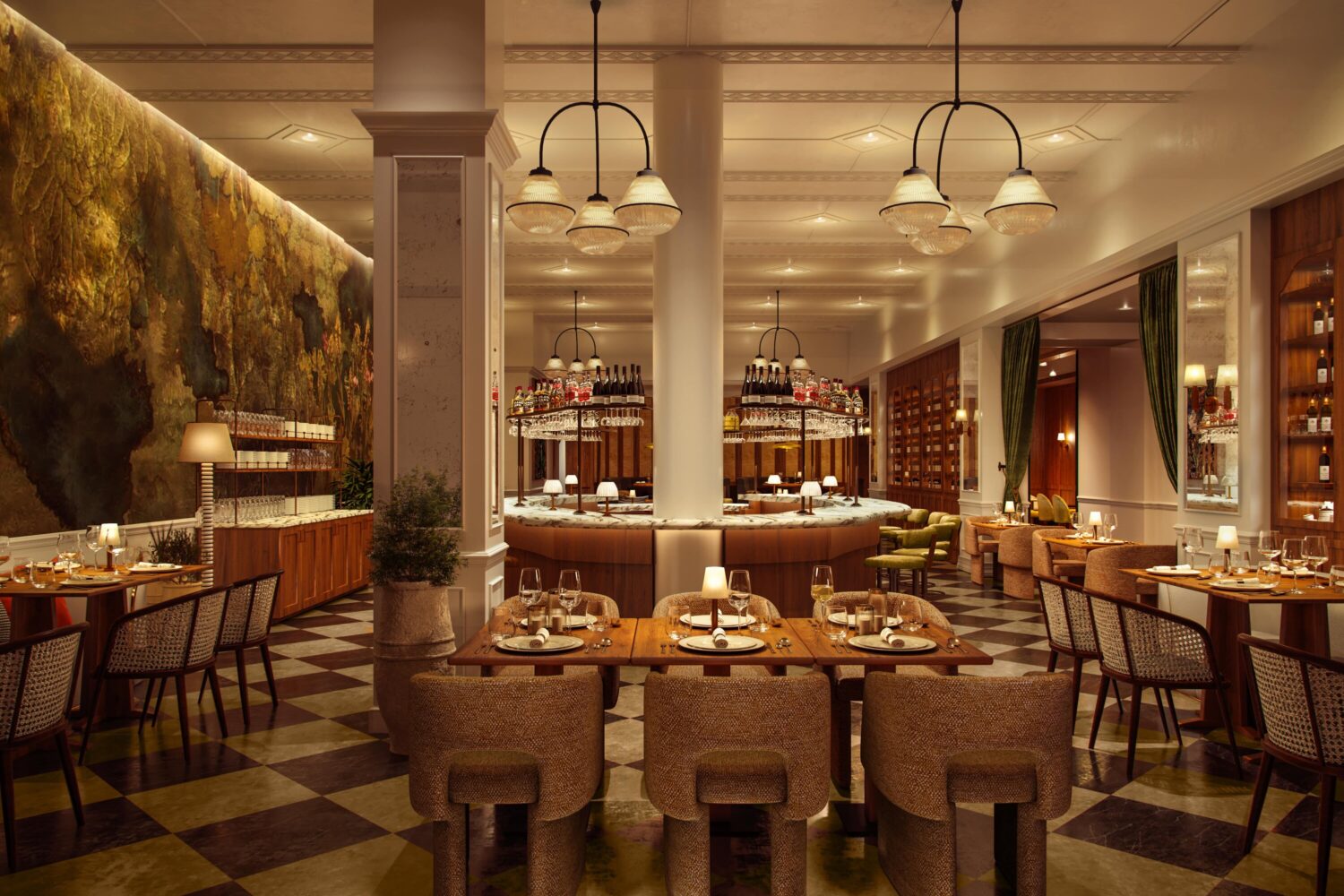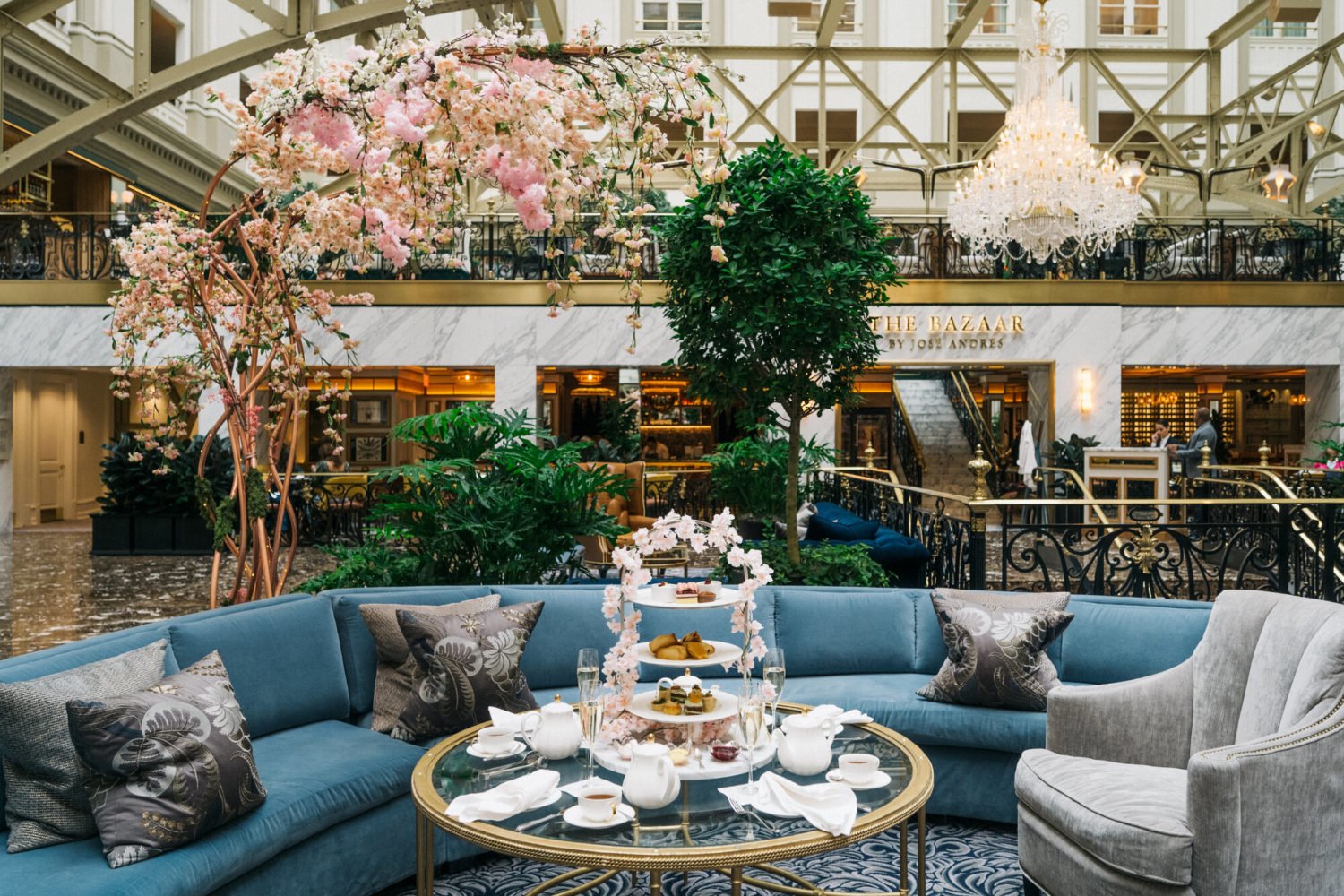John Willard Marriott III looks nervous. We’re sitting in the living room of his rented Georgetown rowhouse on a crisp, sunny morning. Nearly ten of these could fit inside the Potomac mansion he used to share with his wife, Angela, and their three daughters—before their marriage fell apart, unleashing, Marriott says, a cascade of events that left him estranged from his parents and his siblings. It’s why he’s invited me here: to detail a life of hidden pain and regret, and explain why he’s going to court against his own family, which happens to control the largest hotel empire in the world.
This isn’t easy for him, he says. He stammers and laughs at awkward moments. He fidgets with a pen, clicking it open and closed, as we talk. He’s spent his whole life trying to please his billionaire father—John Willard Marriott Jr., known as Bill—and to live up to the impossible expectations attached to his famous name. As a boy, John says, he attended high-pressure private schools, followed a religion he didn’t believe in, and smiled through severe depression, all to appease his dad. Even as an adult, he says, he could be rebuked for the smallest transgressions, such as growing a beard when he was around 50: “My dad was so mad at me. I was supposed to make a speech to give him an award that night. He said, ‘You can’t make that speech unless you shave that beard off.’ ”
Now, as punishment for leaving his wife, John alleges that his father is trying to drive him into financial ruin—cutting him off from the Marriott fortune and forcing him out as CEO of a separate, privately run hotel business called JWM Family Enterprises. As a result, John says, he was left with no choice but to sue both his father and his uncle, Richard Marriott, who share control of the trust established by their parents, alleging breach of fiduciary duty. John wants them both removed as trustees and to be made whole for the millions of dollars he alleges he’s losing annually now that he no longer earns a salary from JWM or has access to his trust. “I’ve gotta stand up,” he says. “Otherwise they’ll destroy me.”
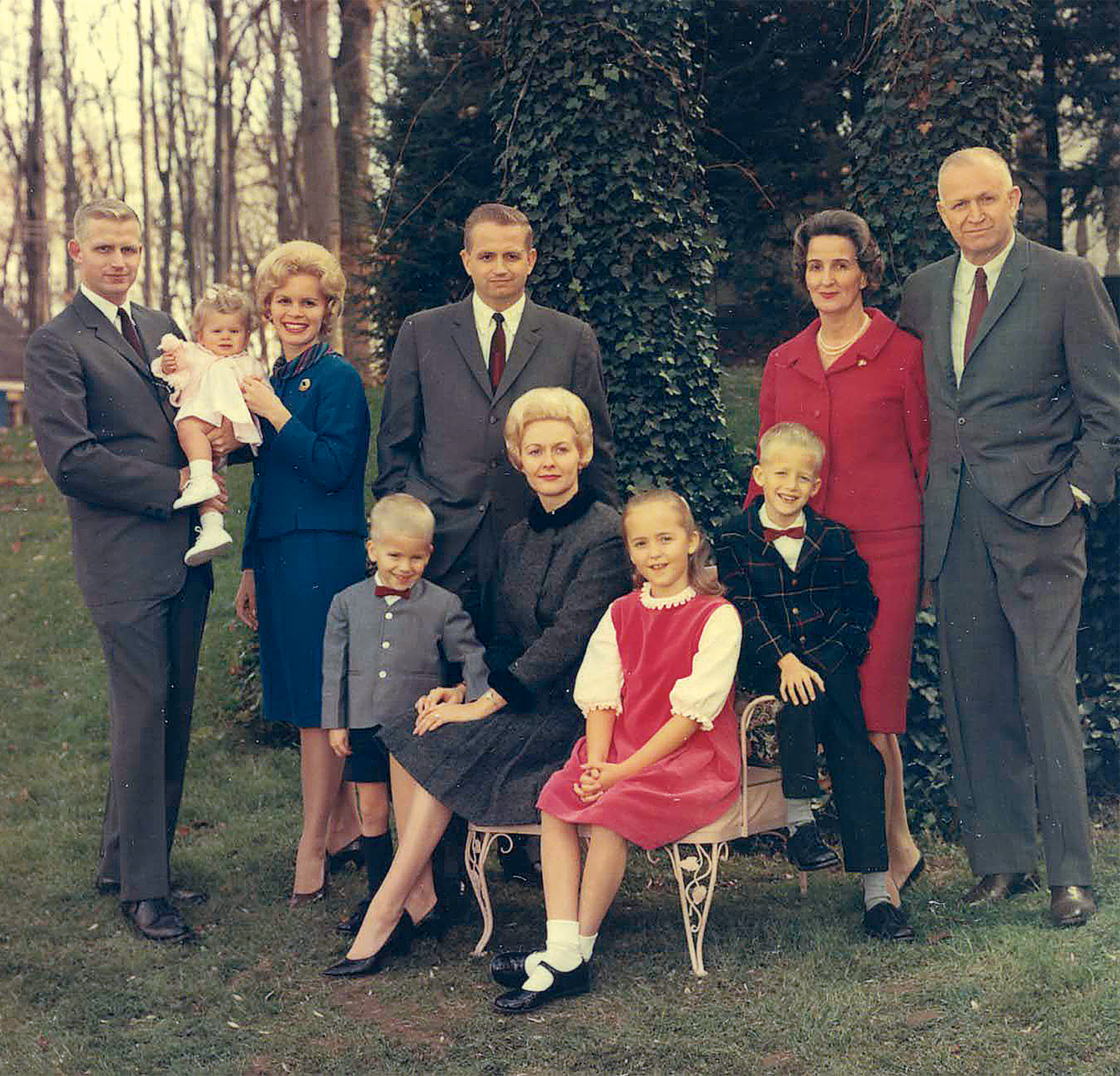
By going public with his claims of mistreatment and betrayal, the 56-year-old Marriott is threatening to shatter the carefully cultivated image of one of Washington’s most powerful families. In John’s telling, the Marriotts come off as fractious and unforgiving, controlled by a domineering patriarch willing to cast out his own if they displease him. The family and their representatives reject John Marriott’s claims—and say they’ve worked hard over the years to help him address his drug-and-alcohol addiction. Whatever truth unspools over the course of the litigation, it’s bound to complicate the picture of wholesome tranquility conveyed by the oil-painted family portraits that hang in the lobbies of many of their hotels.
Bill and Donna Marriott raised John, his sister, Debbie, and brothers Stephen and David in a brick ranch house off River Road in Bethesda’s Kenwood. Religion was the center of their lives. For a period in the 1970s, Bill devoted 25 hours a week as a Mormon bishop, on top of the 70 hours he spent as CEO of Marriott, according to a 2007 Washingtonian profile of the family.
To friends and neighbors, they seemed happy and, considering their vast wealth, surprisingly normal. John enjoyed throwing a football around and appeared to get along fine with his parents. “He was a good son, I think, in every respect,” says Paul Thaler, who grew up with him.
That Bill Marriott held his kids to high standards is not in dispute. It was, after all, the family way: Bill’s father, the original J.W. Marriott, “was never happy,” Bill told the Wall Street Journal in 2005. “I got Bs and he wanted As. He challenged everything I did.”
Bill expected his own children to work hard, adhere to the Mormon faith, perform well in school, and never take advantage of their last name. “My dad knew everybody would be looking at us as Marriotts and expect the worst—lazy, spoiled, all of that—and none of us are,” says John.
But in his lawsuit, he alleges that obeying his father also meant covering up a dark reality. John says that as a sixth-grader at St. Albans—the prestigious boys’ school where a 2009 addition was named Marriott Hall—he contemplated suicide. He says the rigorous coursework was too much to bear for a kid with anxiety and ADD, and he begged his mom and dad to let him transfer to public school. He says that one night as he lay in bed thinking, “I can’t deal,” he decided to walk down to his parents’ room to ask for help.
“I didn’t understand depression or any of that at the time—I just knew I was so sad,” John remembers. “My dad just kind of said, ‘You’ve got everything you need. Go back to bed.’ ” Within a year, John says, his anxiety worsened to the point that he couldn’t sleep. According to his lawsuit, his father’s solution “more than once” was to give him “a strong adult prescription drug (Valium).”
Despite his alleged struggles at home, classmates at St. Albans remember John as a likable, athletic guy with a cool car. (It was a ’73 Firebird. John still has it, along with a collection of vintage Ferraris, Lamborghinis, Corvettes, and Jaguars.)
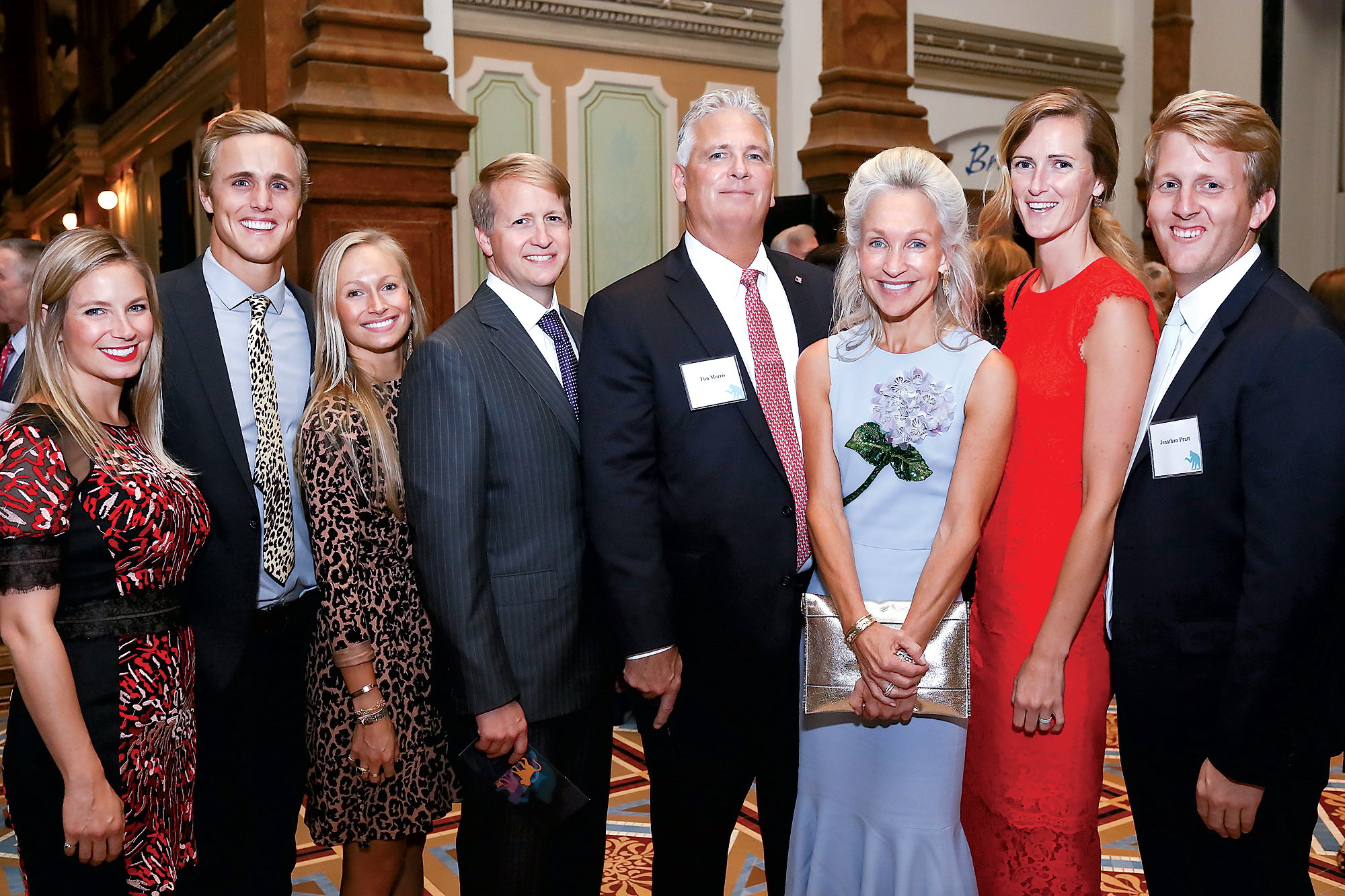
Everyone knew that John was Mormon, of course, but he wasn’t rigid about it. He went to parties. Friends recall that he may have enjoyed a beer every now and again, but nothing more.
“He was certainly more restrained than many of my classmates were in the late ’70s,” says Tom Challinor, who met John in first grade at Beauvoir. “There were kids who were wildly running around and doing lots of drugs and conquering ladies—you know, long hair and loud—and I wouldn’t call John any of those things. He was private but always very friendly, and he moved very easily through the different cliques.”
Whether his buddies noticed or not, John says that by age 17, he was into more than the occasional beer.
John says he’s divulging his drug-and-alcohol problem because he has “nothing to hide” and his family has used it as “a weapon against” him in the past.
“It’s something that I’ve struggled with my whole life, and continue to struggle with,” he says. “I’ve sought help and continue to seek help. But I think it’s important to be upfront about it. While I was really struggling, I still performed above and beyond even my own expectations.”
John says he did well both academically and socially at the University of Utah, where he met his future wife, Angela Cooper. They made a striking pair—John sandy-haired and blue-eyed, Angela a beautiful blonde. John says that like him, Angela had doubts about the Mormon faith.
Nonetheless, they married at the LDS temple in Salt Lake City shortly before graduation in 1986. John, who’d taken nearly two years off from school to complete a Mormon mission in Japan, was 24. Angela was 23. (In his lawsuit, John says his dad told him “he needed to get married by the time he finished college” and that he’d rather his son “come home in a pine box than . . . engage in premarital sex.”)
The couple settled in Washington, and John joined the family business, beginning his ascent toward the job that appeared to be his destiny: CEO of Marriott International.
John’s elder brother, Stephen, was born with a muscular disorder called mitochondrial disease, which eventually rendered him blind and deaf. Stephen died in 2013, when he was 54. Debbie, the eldest sibling, devoted most of her adult life to raising her five children, joining Marriott’s executive ranks only in 2006. David, the baby by 12 years, simply wouldn’t be experienced enough to take the helm, though colleagues say his personality is the closest match to that of his dad and grandfather.
That left John, who started as a dishwasher in the Crystal City Marriott at age 15. By the time he was an adult, it was clear Bill Marriott was grooming him as a potential successor. “With his gold-plated name, his all-American good looks and a quarter-century in the family business, Mr. Marriott, 41, would seem to be a perfect fit for his father’s shoes,” gushed a 2003 New York Times profile.
Though John held down a number of positions—hotel general manager, food-and-beverage director, finance director, executive vice president of sales, and ultimately, president of North American lodging—some colleagues doubted he had the talent to lead the whole company.
“John certainly did all that he had to do as he rose up, but if he was speaking at a grand opening or interacting in a room of media or interacting in a social setting like a cocktail party, he just never seemed that comfortable,” says Roger Conner, who spent about 30 years at Marriott before retiring as vice president of communications in 2009.
Others are harsher. “Senior and Junior were both very balanced, logical, calm, cool, collected decision makers,” says a former senior vice president, referring to the elder two John Willards. “John was none of those things. He could have a temper. He could be a rational decision maker, and at the next meeting or on the next decision, it would just be a different process. He was erratic.”
By 1997, John had been to rehab for abusing prescription medications and alcohol, checking into a facility in Loma Linda, California. Yet colleagues didn’t suspect he was struggling with addiction, says the former executive. “He was where he had to be, when he needed to be there.”
John alleges that his father knew about his substance abuse but didn’t care as long as he kept it under wraps. He insists he never let it get in the way of work. Whether or not that’s true, one thing John couldn’t control was Arne Sorenson’s arrival.
Marriott hired Sorenson away from the partnership at Latham & Watkins in 1996 to help with legal and financial strategy. The newcomer quickly impressed stockholders and coworkers alike, and within two years he was named chief financial officer. “He’s an extremely bright, extremely smart, charismatic guy,” says a former Marriott vice president. “Arne has it all.”
In 2005, John remembers, his cell phone rang while he was sitting in the Rockville Department of Motor Vehicles parking lot. He says it was one of his dad’s lawyers calling to let him know he was likely out of the running to become CEO.
“I was devastated,” says John. “I sat in my car and cried for half an hour. So in my license picture, my eyes are all red.” His divorce records indicate that the time around the parking-lot call was a tough period for him. That same year, he received outpatient treatment for alcohol and prescription-pill addiction from Kolmac recovery center in Silver Spring.
By that time, both John and Angela were fixtures in Washington society. Angela served on boards for the Make-a-Wish Foundation, the Washington Performing Arts Society, and the American Heart Association. As members of the board of the National Zoo, the couple helped spearhead the fundraising drive—including a $1.6-million gift from the Marriott family—to bring back the giant pandas.
Whatever their reservations about the Mormon church, they raised their three daughters in the faith, attending the LDS temple in Potomac. John taught Sunday school for a time.
I’ve gotta stand up. Otherwise they’ll destroy me.
Knowing he wouldn’t become CEO, he left Marriott in the fall of 2005, though he remained on its board of directors as vice chairman. In the press, the move was framed as entirely his decision. “John’s been thinking about this for a long time,” a Marriott spokeswoman told Bloomberg News. “He’s very entrepreneurial and has a knack for real-estate investing.”
Bill Marriott stepped down in 2011. As expected, Sorenson replaced him, becoming the first non-family member to head Marriott. By most measures, Sorenson has enjoyed extraordinary success. In 2016, he led Marriott International’s $13.6-billion acquisition of Starwood Hotels & Resorts, catapulting the company’s total number of hotel rooms to more than 1.2 million. According to Fortune, that makes Marriott 50 percent larger than Hilton, the world’s next-biggest hospitality player.
Marriott’s most recent quarterly profits totaled $392 million, a 460-percent boost over the previous year. In 2018, the company will break ground on its new $600-million Bethesda headquarters.
As the company flourished without him, John Marriott moved over to running the Marriotts’ private hotel venture, JWM Family Enterprises. He had started the business in 1993 as a part of creating a more tax-efficient estate plan. In part by contributing some of his family’s securities to JWM, John claims he helped save all the Marriotts “billions of dollars” in estate taxes. By 2014, he says, he had built JWM into a 16-property operation with more than $30 million in profits.
His home life, however, was unraveling. In 2010, the family moved from their 12,000-square-foot Potomac mansion into a 20,000-square-foot one they built two doors down from Uncle Richard—yes, the same uncle whom John is now suing.
Neighbors grew fond of John and “Angie,” who they say were always friendly and warm. Angie could be spotted riding her bike—“She’d look so pretty,” says Donna Ward, who lived a few houses away—and the whole Marriott clan would turn out for the annual Christmas party hosted by Richard and his wife, Nancy. To the extent anyone ever gossiped about the pair, the chatter revolved around John’s cars—was it true one was used in the 2013 movie version of The Great Gatsby? How many did he actually have in that big garage on their property anyway? “They were a happy family,” says Ward. “It just looked like the perfect picture.”
It wasn’t. Angie “was openly disappointed when he failed to succeed his father,” John alleges in his lawsuit. Sandy Ain, Angie’s lawyer, says that’s a mischaracterization: “Angie was concerned about John and his well-being is a better—and more accurate—way to say it, and his issues with drugs and alcohol. From her standpoint, it impacted every aspect of his life.”
In court papers, Angela says her husband “created an environment within the household that was inconsistent with a healthy, stable, and respectful marriage.” Between 1997 and 2014, court filings show, John enrolled in four different rehab programs for addiction to prescription medications and alcohol. Angela also alleges that her ex-husband cheated on her “numerous times,” which John disputes. He does acknowledge that in 2014 he began an affair with a French woman—whom he is still with. In the lawsuit against his family, he blames Angela for their split.
“Angela had embraced her public role as a Marriott wife. She relished that role and all that came with it,” reads his complaint. “But at home, the marriage had long been devoid of affection or compassion. After years of estrangement and loneliness, John met another woman and fell in love.”
Through her lawyer, Angela declined to comment for this story. Despite the problems in their marriage, Ain says Angela remained committed to John until he walked out: “She was devoted to him—that I can tell you—without any qualification or equivocation. She cared about him. She was worried about him.”
John says he traveled to the family vacation compound on Lake Winnipesaukee in New Hampshire to break the news to his parents that he was leaving Angie: “I explained why and what was going on. My dad just kept saying, ‘You’re leaving the family.’ I’m like, ‘I don’t want to leave the family.’. . . I didn’t understand at the time that he meant he was kicking me out.”
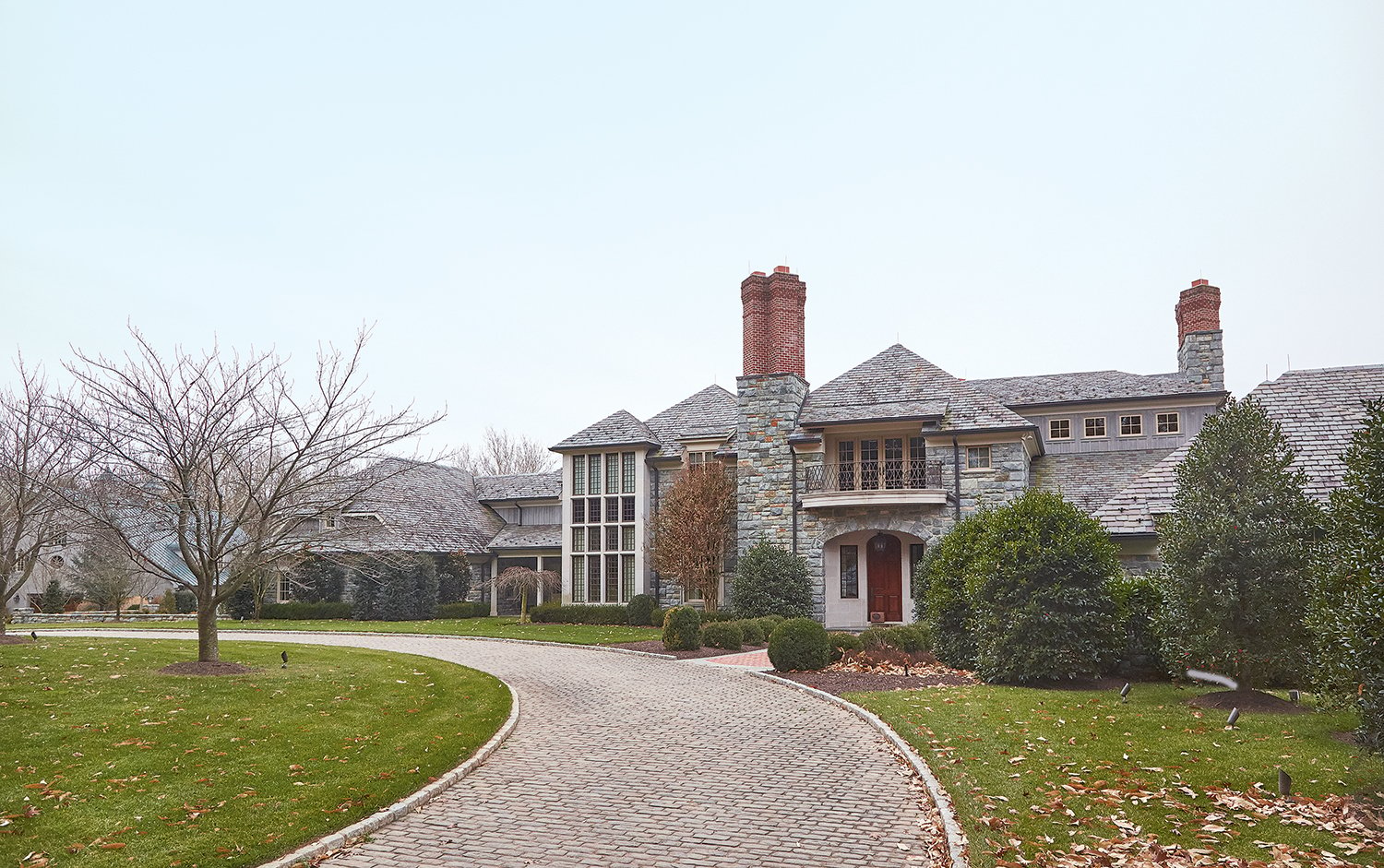
From that point, Bill Marriott unleashed “a relentless flaying,” according to John’s lawsuit, denying John access to his trust, threatening to expose John’s history of substance abuse if he didn’t resign from the board of Marriott International, slashing his equity in the JWM hotels, and diverting a “substantial part” of John’s trust to “a non-beneficiary.” John declined to say whether the non-beneficiary is his ex-wife because the terms of their divorce settlement are under seal, though she remains close with his family.
He says his father also forced him out as CEO of JWM Family Enterprises and that the combined loss of that salary and his trust amounts to millions of dollars annually. That said, he’s far from destitute. An SEC filing shows he holds about $49 million in Marriott International stock. He also still owns the Potomac mansion he shared with Angie, valued at more than $8 million (though he says it’s in a trust for his daughters).
Through a family spokesman, Bill and Richard Marriott deny John’s claims. “Bill and Dick Marriott are saddened by John’s filing of a lawsuit,” a written statement reads. “Bill has worked very hard over the years with a great deal of understanding to help John address his own problems which, in the lawsuit, John himself acknowledges exist. That said, Bill has reviewed the complaint and the allegations of misconduct simply are not true and are baseless. Bill continues to hope for the very best for his son John, but now must defend John’s lawsuit to ensure the best possible long-term result for the entire family, including John’s daughters.”
For a man in his mid-fifties, John Marriott appears not to have shed a certain streak of adolescent rebellion. At his Georgetown rental, he has fastened a Ping-Pong net to the elegant dining table and hung Ferrari posters on the dining-room wall. As we sink into the overstuffed couches that came with the place, John says he’s deeply saddened by the rift: “To sue my dad and my uncle is the last thing I want to do, and the last thing I ever expected to do. I’ve always looked up to them, and I’ve always trusted them.” But for the first time in his life, he adds, he also feels free.
The rest of the family has a different take. In e-mails to me, John’s siblings Debbie Marriott Harrison and David Marriott—both high-ranking executives at Marriott International—say they’re concerned about their brother’s health and well-being. They call his allegations “false” and “unfounded.” David writes, “My Father and my uncle have always had the best interests of their children at heart, and I believe my Father has done everything in his power over the years to help John address his problems.”
All but cut off from his family, John spends weeks on end with his girlfriend in the resort town of Chamonix in the French Alps. He stopped going to church. “I got tired of trying to live up to an image, or whatever, that somebody else was imposing on me,” he says. “I figured I’d follow my own beliefs, and I try to be a little bit more open-minded than what I heard every Sunday for years and years.”
A court date is scheduled for the end of January, and John says he’s ready to fight: “This is not gonna end unless I stand up.”
This article appears in the January 2018 issue of Washingtonian.
